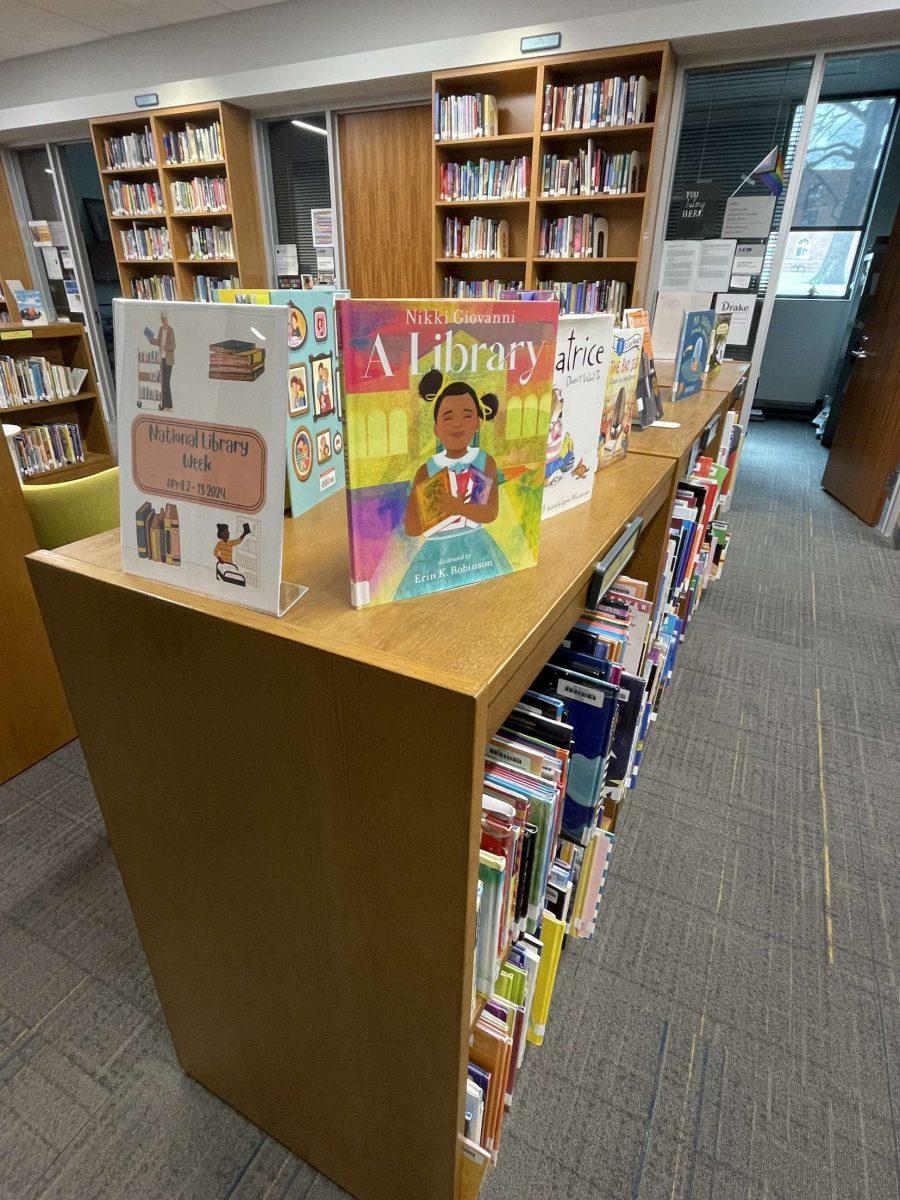Book banning is a controversy that is sweeping the nation. Since book banning in Iowa began in the 1980s, over 450 books have been “banned” from Iowa school districts. But what is a “book ban,” really?
“It’s important to distinguish between a book challenge and a book ban…There’s effectively no way to ban,” said Beth Younger, associate professor of English. “…You can reduce access to it by removing it from libraries, which is totally offensive and anti-democratic. But challenging is when people say, ‘Okay, I don’t think this book should be available.”
Iowa has been facing widespread book ban laws in public elementary, middle and high schools. These book bans are meant to filter certain information and representations from students’ awareness.
So what about book challenges at Drake? As a private university, Drake is basically untouchable in this area, but the concept of book banning is a major discussion between professors and their students across a variety of majors. The challenges are still affecting students’ learning at Drake in the sense that it’s an important societal discussion right now and will affect their career paths.
Younger openly discusses book challenges with her students, encouraging them to analyze the literature they read but ultimately establish the “why” behind their opinions.
According to Younger, Young adult fiction is one of the most challenged genres by these bans. For this reason, and the fact that she already teaches many YA books in her classes, Younger chooses to teach books that include regularly challenged materials. In her First-Year Seminar course, adolescence in American film and fiction, students read “Gender Queer” by Maia Kobabe, a memoir that discusses LGBTQ+ and transgender issues, and “Skim” by Mariko Tamak, a graphic novel that includes content related to questioning sexuality.
“I’ve always been aware of the issue. And I’ve always taught books that have been challenged or banned,” Younger said.
Younger does this not only to bring attention to the books under challenge but also to make her students question why someone would even want to ban them.
DeDe Small, a professor in the School of Education, said she must maintain a focus in her classes on how future educators may approach the subject of book challenges to their future students.
Small also discusses book bans in her classes but, as an education professor, takes on a slightly different perspective.
“We do discuss the recent legislation and talk about what their rights and responsibilities are as educators,” Small said.
Small said that legislators are “over-applying” some of the measures surrounding censorship, so people are worried about using materials and books that aren’t necessarily part of the bans. In discussions with her students, there is a focus on the policies and regulations behind the issue.
While Small doesn’t have many required readings for her courses, she does try to expose her students to a wide range of genres and topics of books. Small said it will help them later on in the classroom.
“Know your students, know your books, because then you’ll be able to best find the right match…find the books that speak to readers…help them see themselves and help them learn about the world,” Small said.
Neither Small nor Younger have had any issues with administration, staff or students pushing back on their decisions regarding what to teach or discuss.
“In higher education, one of the basic principles is called academic freedom,” Younger said.
Book challenges and restrictions impede on that freedom, but Drake professors are working to educate and inform their students.
Even outside of the classroom, Small and Younger have spoken on the subject of book banning. Younger speaks on panels on and off campus and participates in open discussions with the attendees to make them understand that restricting people’s access “just seems anti-American.” Small said even having conversations with friends and peers and attending events related to the issue is important.
Both professors also keep up with Annie’s Foundation – a group started by moms that distributes challenged books for free – and the organization’s mission to keep books accessible to students.
“I think more than anything is just staying consistent and celebrating the right to read and how important that is for students,” Small said.







